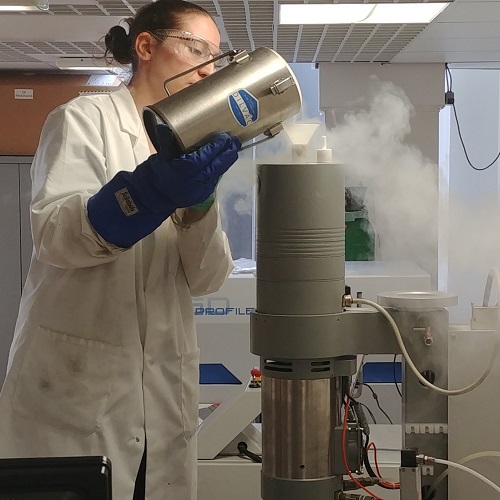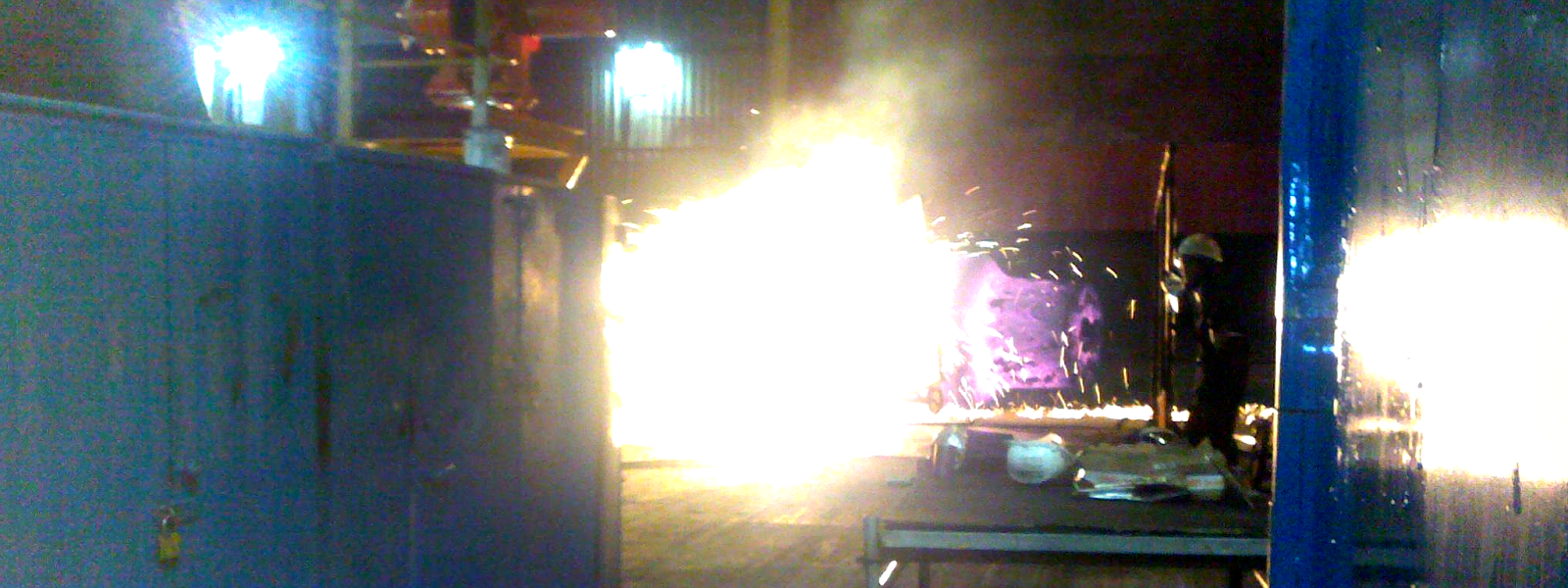
Range of AnalysesThermal analysis
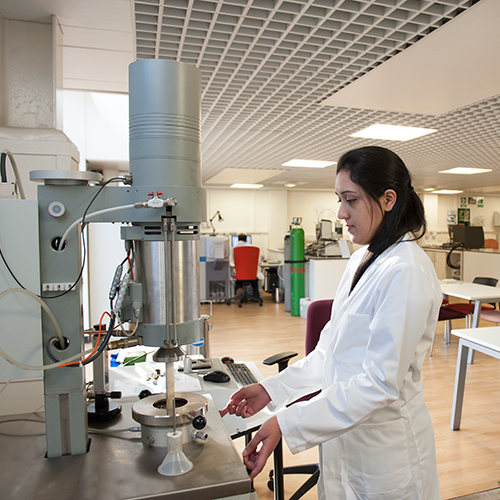
Laser Flash Analyser (LFA)
- The NETZSCH LFA 427 assesses thermal diffusivity and conductivity from RT to 1600oC
- Measurements in inert gas atmosphere or vacuum
- Capability to analyse a wide range of materials:
- isotropic and anisotropic with a special sample holder for in-plane measurements
- insulating and conducting
- solid and viscous/fluid, and molten salts/low viscosity with a special sample holder.
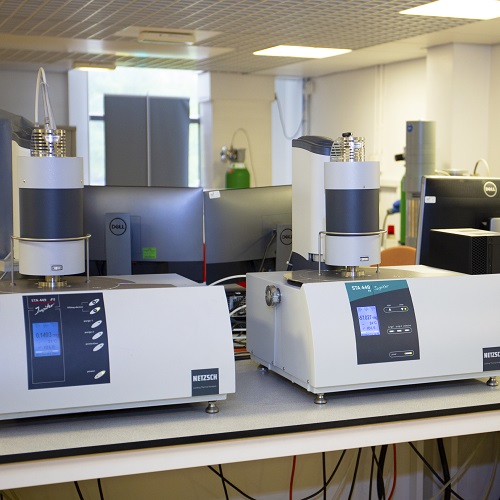
Simultaneous Thermal Analysers (STAs)
- The NETZSCH STA 449 F1 and F3 Jupiter STAs measure thermal differentials and weight change from RT to 1600oC
- The F1 Jupiter has a SiC furnace for analysis in various atmospheres or vacuum
- F3 Jupiter has a Rh furnace for specific heat capacity
- Large capacity thermal gravimetric analysis capabilities
- Capability to study phase transformations e.g. melting, crystallisation and sublimation.
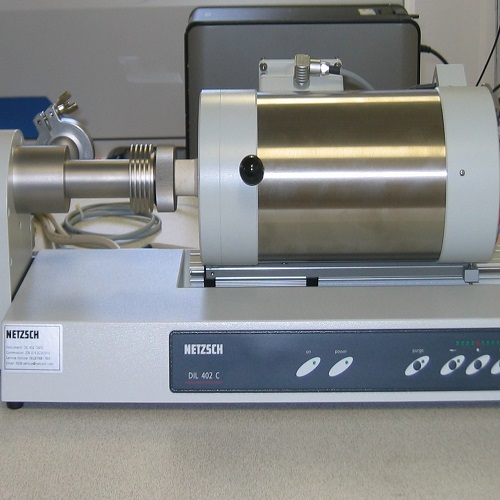
Thermo-Mechanical Dilatometer (DIL)
- The NETZSCH DIL 402C measures the coefficient of thermal expansion from room temperature to 1600oC and in a controlled atmosphere
- Capability for shrinkage and sintering parameters of powder metallurgy and ceramic materials.
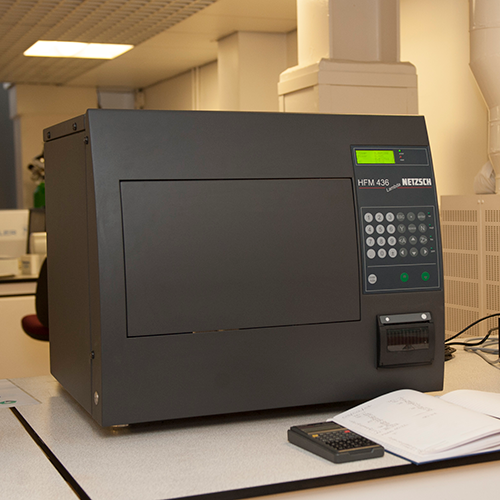
Heat Flow Meter (HFM)
- The NETZSCH HFM 436 measures directly the thermal conductivity and resistance of insulation materials
- Temperature range between -20oC and 80oC
- Suitable for square panels of variable thickness (5mm to 50mm)
- Measurements performed according to ASTM C518, ISO 8301, JIS A1412 and DIN EN 12667.
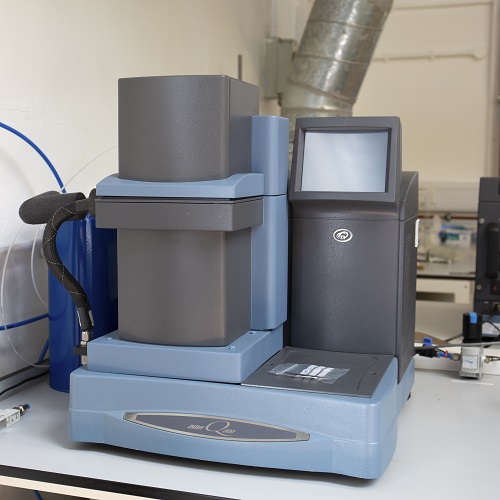
Dynamic Mechanical Analyser (DMA)
- The TA Instruments Q800 DMA tests tension, compression, bending, cantilevering from sub-ambient to 600°C
- It provides accurate control of stress and air bearings for low friction support
- Static or dynamic analysis
- Frequency range of 0.01 to 200Hz for fatigue testing
- Tests in controlled and inert atmosphere.
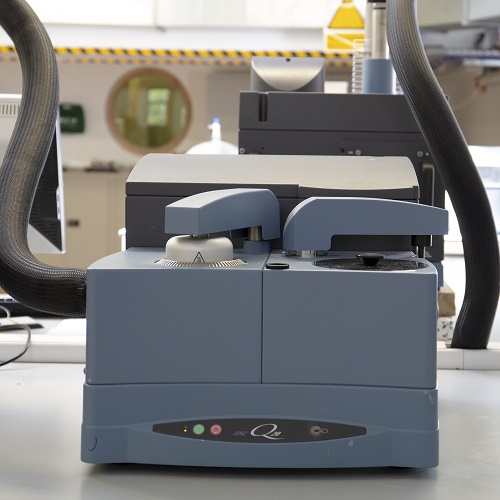
Differential Scanning Calorimeter (DSC)
- The TA Instruments Q20 DSC measures the differential heat flow from -70°C to 600°C
- It also measures material structural changes as a function of time and temperature
- Analysis completed in a controlled / inert atmosphere
- Used in applications requiring the analysis of complex transitions separation, baseline stability and sensitivity.

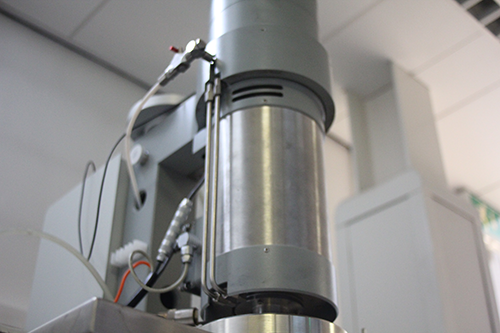
Netzsch Laser Flash Analyser
